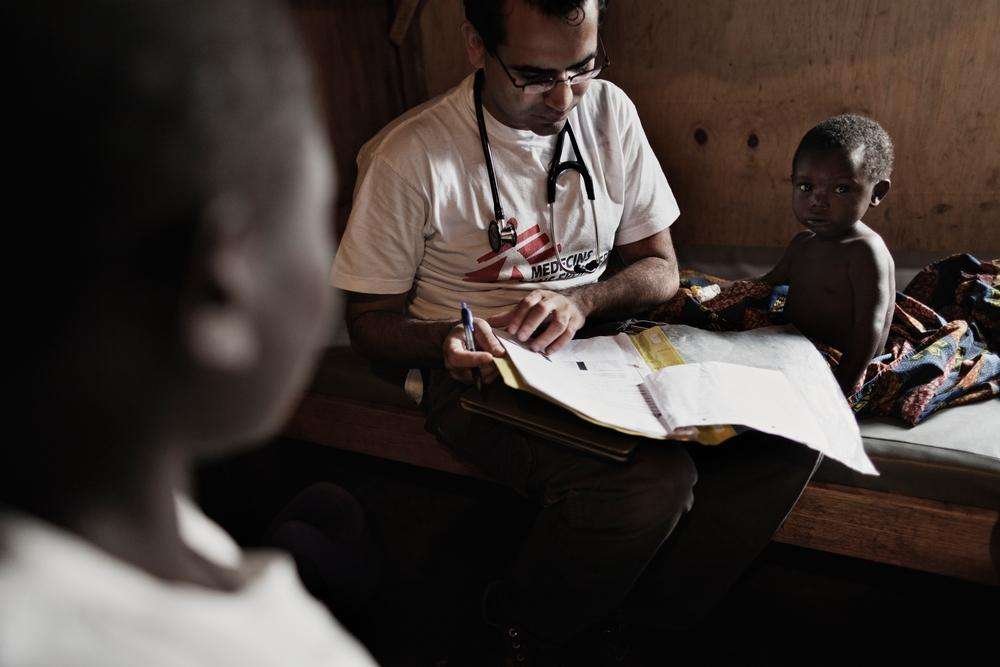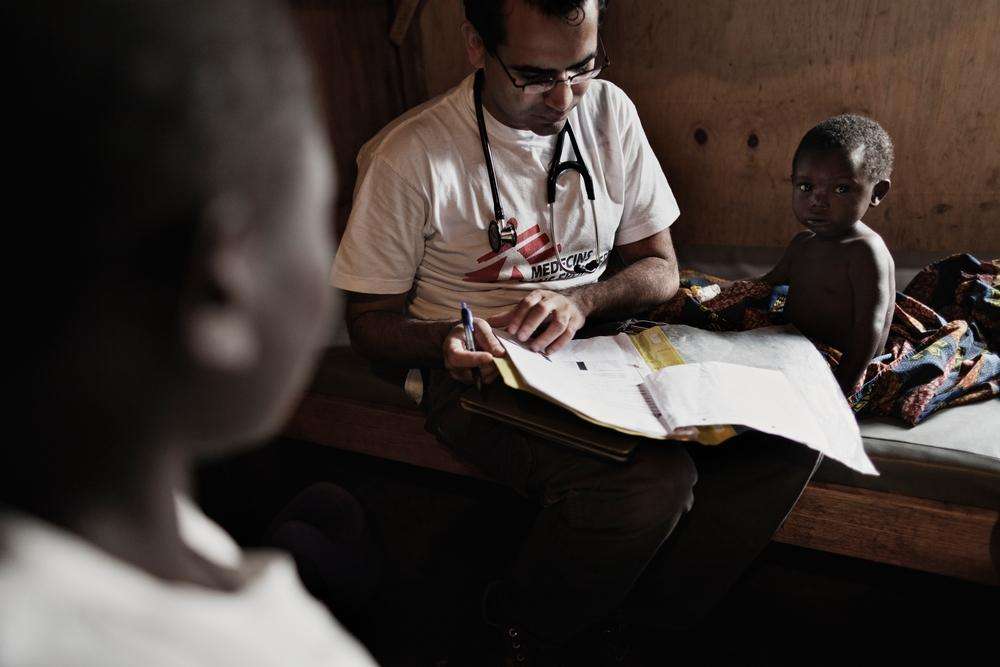Months of conflict between armed groups in the Democratic Republic of Congo (DRC)’s North Kivu Province have exposed thousands of civilians to extreme levels of violence. Many people have sustained life-threatening injuries, lost family members in the fighting, and have been forced to flee their homes. As well as the physical trauma caused, these events have left people with invisible psychological scars that can often go untreated.
Over the past year, thousands of families have sought refuge in the displaced persons’ camps of Bibwe, North Kivu. Between January and August 2013, the population of the area nearly doubled in size from approximately 8,000 to more than 15,000 people. In response to the mental health needs in the area, Doctors Without Borders/Médecins Sans Frontières (MSF) teams have integrated psychosocial care into their existing medical activities in Bibwe.
Violence and Displacement
Bibwe is a town of a few thousand people located approximately 135 kilometers [about 84 miles] northwest of the city of Goma in the conflict-riven North Kivu province of DRC. Though Bibwe has itself been the site of inter-ethnic clashes in the past, ethnically motivated violence in neighboring areas has caused an influx of more than 3,000 displaced families to Bibwe in the last year.
MSF teams began a mental health needs assessment in the area after hearing disturbing accounts from newly displaced people there. The results of the assessment were alarming: of 600 respondents, more than 80 percent reported being the victim of direct violence and nearly 90 percent reported having witnessed an act of violence.
Seventy-one percent of respondents said that they had nightmares, and 74 percent said they had flashbacks of the violent events they had experienced.
“In the morning I saw the body parts of people everywhere—I could not tell which leg belonged to which head,” said a 38-year-old man who saw 30 people—including his four brothers—being hacked to death. “Now the images of what I saw are always coming into my head during the day and during the night.”
Responding to Humanitarian Needs
To respond to the considerable mental health needs in the area, MSF has trained counselors to work with survivors of violence in the camps. The team runs support groups and provides individual, family, and group sessions.
“The vast majority of these people have either directly witnessed violence or had their own lives placed in danger, and many have lost immediate family members,” explains Isabel Rivera, MSF’s psychologist responsible for the mental health program. “The need for mental health care in Bibwe is great and should be considered a vital component of the humanitarian response in this area.”
Many other elements of the humanitarian response have been lacking in the camps. Few humanitarian organizations are present in Bibwe. Most of those that are have been unable to regularly access the area for months due to poor road conditions, landslides, and rock falls caused by the rainy season. Many families explained that they still lack food, water, and cooking supplies and don’t have the money to buy seeds or tools that would enable them to grow their own food. The shelters are basic and do not adequately protect from the rains.
“The poor conditions the people are living in makes them even more vulnerable to psychological problems like stress, as well as illness,” says Rivera. “While certain areas of North Kivu are currently experiencing a period of relative peace, we can’t forget that many areas continue to be affected by violence and displacement and the people there still need help. We must recognize and respond to the psychological distress the people here have been through.”
MSF offers primary health care at the Bibwe health center and secondary health care in nearby Mweso general hospital. In North Kivu province, MSF is running medical programs in the areas of Goma, Walikale, Masisi, and Rutshuru. Nearly 3,000 national and international staff are currently working in more than 20 project sites in Kinshasa, North Kivu, South Kivu, Katanga, Maniema, and Orientale provinces. MSF has worked in DRC since 1981.





